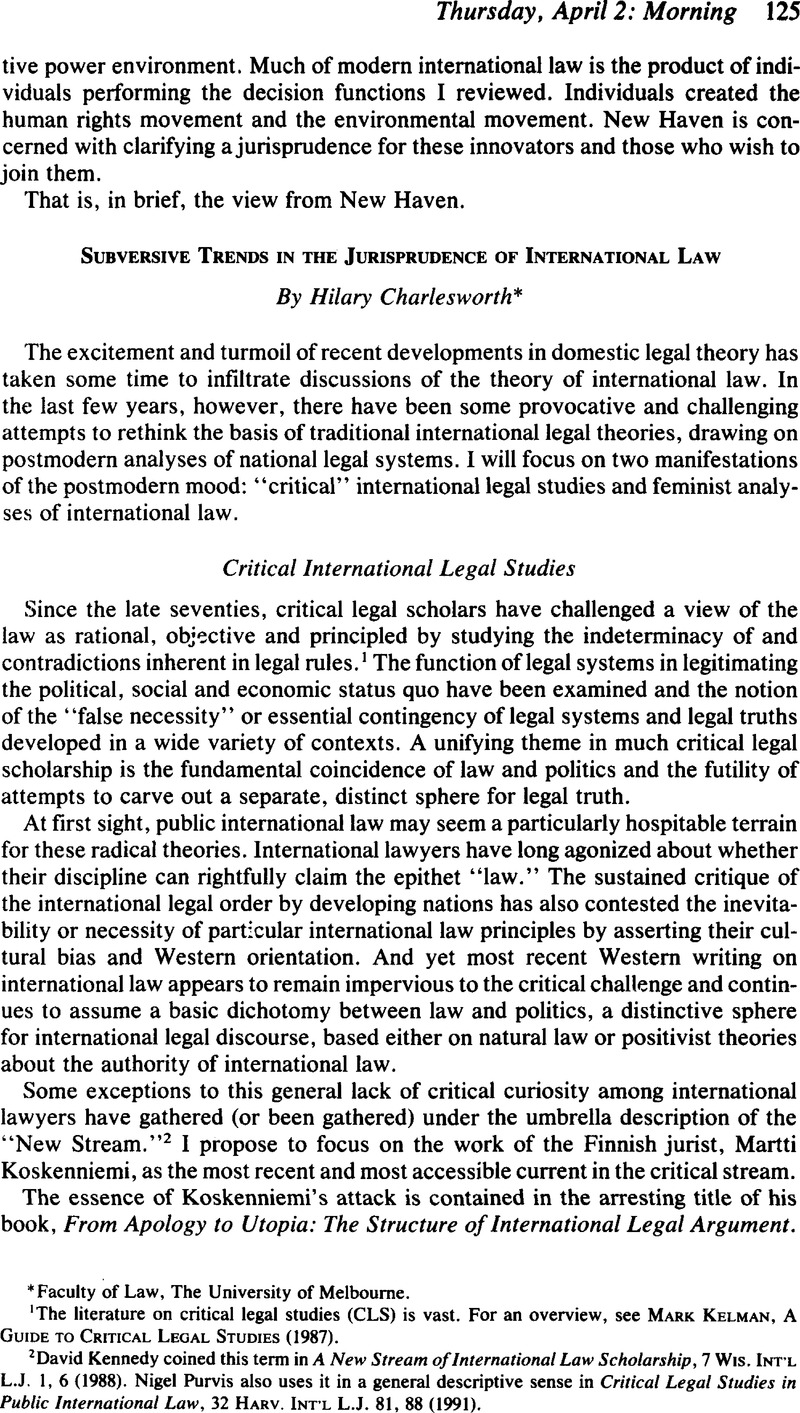Published online by Cambridge University Press: 28 February 2017

1 The literature on critical legal studies (CLS) is vast. For an overview, see Mark Kelman, A Guide to Critical Legal Studies (1987).
2 David Kennedy coined this term in A New Stream of International Law Scholarship, 7 Wis. INT’L L.J. 1, 6 (1988). Nigel Purvis also uses it in a general descriptive sense in Critical Legal Studies in Public International Law, 32 HARV. INT’L L.J. 81, 88 (1991).
3 Martti Koskenniemi, from Apology to Utopia: The Structure of International Legal Argument 48 (1989).
4 Id. at 55.
5 Id. at xxiii. See also Nigel Purvis, supra note 2, at 482-83.
6 Id.
7 Id. at 496-97.
8 Id. at 501.
9 For a helpful discussion of some of the strands in feminist legal theory, see Frances Olsen, Feminism and Critical Legal Theory: An American Perspective, 18 INT’L J. Soc. L. 199 (1990).
10 Martti Koskenniemi, supra note 3, at 499.
11 Anne Runyon & V. Spike Peterson, The Radical Future of Realism: Feminist Subversions ofIR Theory, 16 Alternatives 67, 89 (1991).
12 Koskenniemi’s impressive familiarity with a great range of philosophical, political and sociological literature does not appear to extend to standard feminist works, although feminism has been one of the most lively and productive fields of intellectual enquiry for more than two decades. This gap is manifested in a variety of ways. There is, for example, the consistent assumption that all international lawyers and actors are men; all the author’s analysis and counsel is of or addressed to the third-person masculine. While women may be thoroughly used to their invisibility in traditional scholarly writing about international law, they expect more of those who set out to deconstruct the vocabulary and fabric of the discipline, who take on the task of analyzing the power of language, who recognize in other contexts the influence language has on determining reality.
13 The end of imperialism, for example, does not signal the end of discrimination or violence against women. The complex and often contradictory position of women in nationalist movements and in the decolonization process has been well documented.
14 Self-determination, for example, is a right of “peoples,” entities defined ethnically or culturally, even if half the persons comprising the people have little or no power in that community.